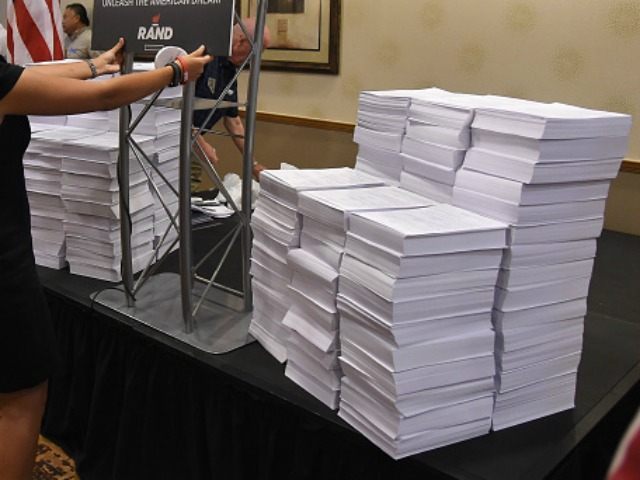Ireland’s 12.5 percent corporate tax rate has encouraged several major U.S. companies like Medtronic, Pfizer, Johnson Controls, and Baxalta to move there in tax inversions in recent months, saving them billions of dollars of taxes and protecting themselves from international competition in the process.
The U.S. corporate tax rate, on the other hand, stands at a developed-world high of 35 percent. What’s worse, its application to foreign profits means that U.S. companies are double taxed, once abroad then again at home — the only industrialized country to do so. It’s no surprise that this uncompetitive tax code leaves U.S. companies seeking greener pastures where they can better invest and hire.
The U.S.’s uncompetitive corporate tax rate also exposes U.S. companies to hostile takeover attempts from foreign companies looking to unlock the true value of an American company artificially undervalued because of its high tax burden. Even if the CEO of an American firm does not want to invert, if the company is publicly-traded, he or she has little say in the matter. This was the fate of Baxalta.
To stop future tax inversions, protect American companies from hostile takeovers, and even encourage foreign companies to come to the U.S., the U.S. corporate tax must be brought in line with international norms. That means dramatically lowering the rate, and moving to a “territorial” tax system where companies are only taxed on the profits they earn at home.
Opponents think otherwise. New restrictions, legislation, and “exit” taxes to try to stop inversions have been tabled by major policymakers in recent months. They claim that high corporate taxes and double taxation is just the price these companies have to pay for the privilege of doing business in America. Those that refuse to do so are nothing more than “corporate deserters.”
But foreign companies that do business in the U.S. are not also held to these tax standards. Namely, they are not forced to pay U.S. taxes on their foreign profits. This perversely favors foreign companies at the expense of American ones. Consider the tech rivalry between Korea-based Samsung and California-based Apple, for instance. Samsung pays U.S. tax on its U.S. earnings but can invest its worldwide earnings in the U.S. tax-free. On the other hand, Apple must first pay U.S. tax on both its U.S. and worldwide earnings before it can invest, putting it at an unfair disadvantage with its foreign competitor.
As a result, U.S. companies are holding $2.1 trillion in profits offshore to prevent the double taxation that would occur if it were brought back home. This has caused American multinationals to invest and create jobs abroad rather than stateside. Boston University economist Laurence Kotlikoff estimates that this tax system depresses U.S. wages by about 12 percent.
Ireland’s low corporate tax rate is widely credited with making the country a “Celtic Tiger,” in which it grew enormously year-after-year, and is also responsible for its robust emergence from the Great Recession. Given the U.S.’s sloth-like growth, it could take some cues from Ireland.
Alfredo Ortiz is President and CEO Of Job Creators Network

COMMENTS
Please let us know if you're having issues with commenting.